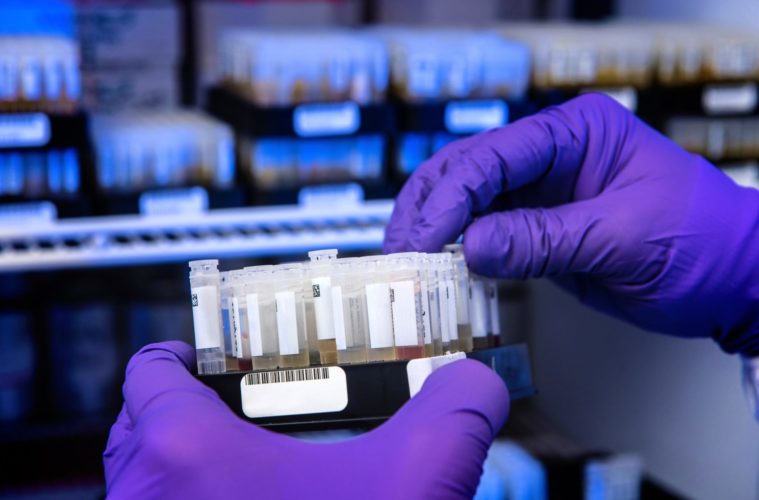As Orange County works to prioritize reopening aspects of the economy shuttered by the pandemic as safely as possible, it does so with the availability of multiple COVID-19 vaccines. While not a cure, public health officials say the vaccine is the nation’s quickest path back to normalcy.
Despite a lack of cure for COVID-19, Andrew Noymer, Associate Professor of Population Health and Disease Prevention Public Health at UC Irvine, says history indicates that vaccines have the potential to be more effective than a cure. Adding that COVID-19 is not going away anytime soon.
“In many ways, vaccines are better than cures – there’s no cure for measles, but very few of our friends and cohorts have had measles because they were born for the most part after 1965,” Noymer said in an interview with Irvine Weekly. “We’re going to have another wave of COVID-19, in Orange County and everywhere, I guarantee it, but I don’t know when, I don’t know how bad it will be — infections diseases come in waves, that’s just the way the universe works.”
Orange County’s move into the Red Tier on Sunday, March 14, came three days before the one-year anniversary of the county’s first coronavirus-related stay-at-home order. The order, issued by former OC Health Officer Dr. Nichole Quick on March 17, 2020, marked the beginning of the pandemic in Orange County in many ways.
Prior to Quick’s order, Orange County only had 166 total COVID-19 cases, and zero reported deaths. However, COVID-19 would soon make its presence felt in Orange County and beyond.
Twelve months later, as of March 15, Orange County reached an accumulative total of 248,881 COVID-19 cases, including 4,486 deaths.
The Red Tier now allows portions of the economy – like indoor dining, movie theaters and gyms – to reopen, while establishments like theme parks and stadiums have also been given the go-head to reopen with modifications on April 1.
Noymer said there are plenty of unknowns associated with COVID-19, even with the introduction of new vaccines. Still, Noymer said he is comfortable allowing the reopening of theme parks and larger outdoor gatherings inside stadiums at a limited capacity.
“These theme parks, for the most part, are outdoors,” he said. “But the theme parks are not what keep me up at night.”
For Noymer, the “nightmare scenario” from his perspective is COVID-19 variants that could potentially evade the effectiveness of the current vaccines available. Noymer used the example of how AstraZeneca’s COVID-19 vaccine was discontinued in South Africa due to a degree of ineffectiveness against the South African COVID-19 variant.
“What does keep me up at night are variants that render the vaccine less potent. We have seen examples of this. It’s a tangible threat,” he said. “It’s more trying to anticipate the virus’s next move.”
In terms of reopening precautions, Noymer said, “We should not emulate Texas,” but rather implement a phased in approach, referencing the unknowns.
“We need to go step-wise, we need to be humble in the face of mother nature and recognize that we don’t understand all of the factors that are driving this,” he said.
In Orange County, July 4 is the target date for Operation Independence, the county’s partnership with the Orange County Fire Authority and the Orange County Health Agency that is working to vaccinate all residents by that date.
Irvine Mayor Farrah Khan, who founded Orange County’s first city-based COVID-19 Recovery Task Force, said while all cities are dealing with a limited vaccine supply, the county seems on track to meet the July milestone.
“I think July 4 is going to be realistic. It can be realistic as long as we get the vaccine numbers that we hoped we would get,” she said. “Johnson & Johnson was just approved – that should bump up the number of vaccines we get – the more supply we get, the faster we’re able to vaccinate people.”
As of March 15, the county has administered 1,005,143 doses of the COVID-19 vaccine to nearly 480,000 people, although the OC Health Agency Database is behind about 300,000 doses due to a reporting lag.
Despite the nationwide push for vaccination, Noymer added that COVID-19 testing will still become a useful tool for those who are not vaccinated and become symptomatic.
“Testing is going to be important in order to stay up to speed on potential variants, and for people who have any sort of symptoms,” Noymer said. “Find out if it’s just a cold or is it COVID-19 – are you vaccinated? – if you are, let’s get this figured out – because it could be a sign of a new strain emerging. And that goes back to my nightmare scenario of a virus that evades the vaccine.”
As reopening efforts and vaccine distribution increases, Noymer was asked if he could define a perspective of COVID-19, nationally speaking. Given the option of, “COVID-19, one year later,” or “Pandemic Year Two,” Noymer said he would go with the latter.
“I would call it Pandemic Year Two, because I still think we’re in a pandemic phase,” he said. “Just because Orange County’s doing okay on any given afternoon, doesn’t mean it’s not still a pandemic.”
Advertising disclosure: We may receive compensation for some of the links in our stories. Thank you for supporting Irvine Weekly and our advertisers.

